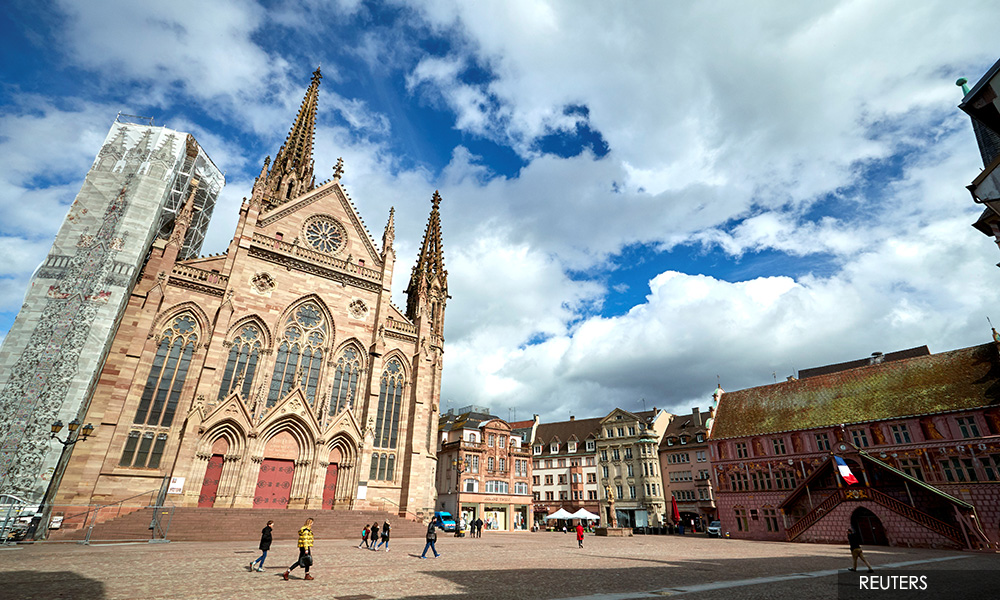The right to practice and profess religion certainly has been one of the casualties caused by the Covid-19. The threat of the pandemic, which has been weathered globally for the past 12 months, has tremendously affected the universally accepted tenet of freedom of religion.
Religion, in any name and sect all over the world, has restricted its religious practices and rituals. The restrictions, although only relegated public religious practices to personal spaces, have in many ways affected the right to religion as a whole.
There is every reason why the right to religion is believed to have been undermined by the threat of Covid-19. Religious practices and rituals around the world directly contravened with the public health advice advocated in stopping the transmission of the virus.
They include public congregations in a large crowd, hand-based greetings as well as touching and kissing objects considered sacred. These practices signify the essence of faith expression in a particular religion, thus, regarded as sacrosanct to be interfered with.
However, the harmful effect of this pandemic has led to politically contentious decisions regarding access to religious holy sites as well as the right to practice religious practices in public spaces.
As early as March this year, the Vatican has closed St Peters Square and the Basilica in Rome to public. Saudi Arabia also made a bold decision in, first suspending umrah before ultimately cancelling hajj to Mecca and Medina for this year. The impact of this cancellation economically is dreadful as hajj makes up 20 percent of Saudi Arabia’s non-oil GDP worth US$12 billion (RM48.7 billion) of annual income.
The imposition of lockdown all over the world to stop the spread of the disease has not spared any worship places. Mosques, churches, temples, synagogues, gurdwaras have all been either completely shut or limited their availability for worshippers to attend and practise religious rituals during this pandemic period.
The first movement control order (MCO) implemented nationwide starting March this year has prevented any religious practices in public places as well. The Sri Petaling cluster which linked to a mass religious gathering in a mosque has made the lockdown order seems justifiable.
Article 11 of the Federal Constitution guaranteed one’s right to practice religion, although there is a limitation of this article under certain circumstances, namely for public order, public health or morality.
Covid-19, as the nation has tirelessly resisted since its first case detected on Jan 25, 2020, proved to have devastated the public health of the country. Notwithstanding limitation set under the pretext of public health, it must be noted that the freedom of religion embodies a fundamental principle towards the formation of a multi-cultural society in this country.

The MCO rules for religious activities have since been relaxed and adjusted according to the pandemic situation at a particular locale. Therefore, allowing a more flexible and room for religious practices and rituals to be practiced in public spaces.
Religious activities in public spaces are guided with a set of SOPs requiring adherence that bound by legal ramifications. New normal for religious practices have been introduced which clearly to allow these rites of faith to be carried on while at the same time to observe public health advice.
Most importantly, what needed are to adapt, accommodate or even substitute one practice with another. It marks as a reconciliation of one’s testimony of faith with an eye on public health advice.
Therefore, it is essential for religious leaders or people who claim to be the guardian of faith to understand the desire of their followers in expressing certain religious practices and rituals in public.
Limiting attendance to a public congregation in places of worship is apposite to the human psyche, as St Thomas Aquinas writes: "Human beings are inclined to live in a society’.
Restriction to perform religious practices in a congregation for a more extended time is feared to be impacting the generational internalisation of faith.
For example, parents with children under 12 have been denied chances to impart religious knowledge through the socialisation of their children at places of worship. The children would as well inadvertently neglect the religious values that could be developed.
The long "lay-off" from religious activities in public spaces possibly represent more challenges to rebuild society with sensible virtues post-Covid-19.
While it is quite admissible for authority to justify the importance of preserving life and public health in trumping individual rights to practice and profess religion, one must also bear in mind that preserving religion does merit certain stature in one’s faith.
The objectives behind the Islamic rulings or the maqasid al-sharia, for example, lay the principles in which authorities are guided in deciding certain rulings for the interest of humanity.
As this year’s Human Rights Day theme relates to the Covid-19 pandemic and the recovery of a better world, human rights and rights-based approach must be central to eliminate the deprivation, discrimination and inequalities that have so long threaten our social fabric.
- Dec 10 is the Human Rights Day
MUTHANNA SAARI is a research officer in Parliament. - Mkini
The views expressed here are those of the author/contributor and do not necessarily represent the views of MMKtT.




No comments:
Post a Comment
Note: Only a member of this blog may post a comment.